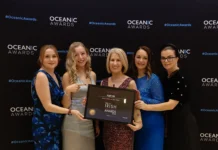Galway Convention Bureau, with its partner Fifty Shades Greener, is working with local hotels on a pilot project to promote sustainability.
The project engaged with nine properties to reduce plastics and packaging from the Galway region hotels, hoping to encourage more accommodation providers to cut their single use plastic waste.
About 1.6 million pieces of plastic are created in Ireland every day, including many small items like individually wrapped sauces, mini ketchups, mayonnaise, and sugar.
Fifty Shades Greener and the Convention Bureau outlined ways to replace these polluting items, with mini-toiletries arguably the biggest plastic polluters in the industry.
Many large hotel chains have already made the switch to refillable dispensers, and there is no coherent reason not to make this simple change.
Hotels are asked to look at each department within their properties and generate an action plan to replace most single use items with re-usable or compostable solutions.
Buying in bulk will reduce the amount of packaging generated by deliveries, and this project included an online platform which identified a list of items any hotel can purchase in bulk to help make the switch.
A ‘circular economy’ is also being promoted, with hotels encouraged to donate old towels, equipment, cutlery etc to external charities.
Commenting on the scheme, Rose Finn of Galway Convention Bureau said: “A lot of work has been done but we need to do more to take centre stage with our global competitors.”
“We’re seeing conference organisers expecting these actions to be implemented as they too have sustainable policies and targets to uphold.”
“We need to build an innovative network in regeneration with a grounded perspective of the harsh impacts to our natural resources.”
The recommendation from Fifty Shades Greener is for each hotel to appoint a Green Manager, someone with authority in the property that could implement changes across all departments.
Out of the nine properties in Galway this year, over 340,000 pieces of individual plastic wrappings are estimated to be abolished.
“Plastic pollution is a high priority, especially as the hospitality industry is a big polluter of plastic; however, in today’s Climate Emergency, a big emphasis needs to be behind the reduction of resources by the industry,” Fifty Shades Greener stated.
“It is a known fact that hotels waste thousands of euros and produce unnecessary Carbon Footprint every day, due to poor processes and systems implemented around their use of energy & water and production of waste.”
The EPA has estimated that up to 70% of food waste in the hotel industry could be avoided, with similar examples for energy and water consumption.













